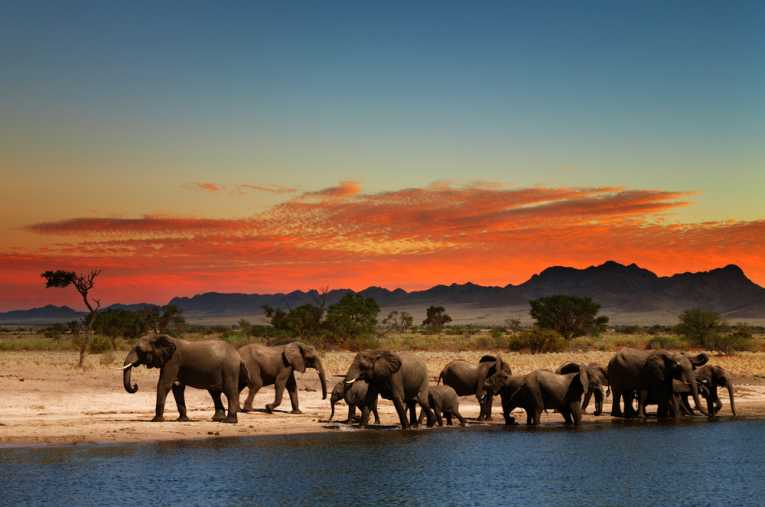The elephant raiders of central Africa are back with a vengeance. Up to 100 heavily-armed horse-riding poachers ravaged Cameroon's Bouba N'Djida National Park last month, leaving hundreds of maimed elephant corpses in their wake. The savage scale of the destruction - which may have wiped out up to 80% of the Park's savanna elephants - has bought a desperate plea from the WWF. "The killing cannot continue" said WWF's Natasha Kofoworola Quist, at a press conference this afternoon. "The situation is urgent, and central Africa risks losing its elephants in years, unless changes come quickly."
News of the attacks first filtered out from the remote central African region some 3 weeks ago. With reports of up to 350 dead-and-detusked elephants, Cameroon's government decide to send a contingent of its army in. But the 100 Cameroon soldiers have only been able to make limited impact on the poaching gangs so far, according to David John Hoyle, conservation director at WWF-Cameroon.
Cameroon government ignored pleas
"The poaching continued for another week after the army arrived, with up to 20 more deaths," he said at this afternoon' press conference. The raiders may now have split up, however, to avoid the army, after clashes were rumored to have left casualties on both sides. The WWF has berated the Cameroon government for ignoring repeated pleas that its parks were under-protected and vulnerable to such attacks.
"WWF has for years cautioned the government that its rangers are not properly trained or equipped to address the scale, intensity and organized nature of illegal poaching" they said in their press statement. "WWF calls on President Biya to extend an appropriate level of protection to wildlife in other Cameroon parks that are under a similar threat."
An old menace, new weapons
The elephant raiders are not a new phenomenon. Arabic-speaking tribes from Chad and Sudan wrought similar destruction to elephant herds across central Africa back in the 1970's and 1980's. Improved anti-poaching measures for National Parks, and decreased demand for ivory, helped to temper the threat. But now, with demand for ivory at an all-time high - thanks to its high status symbol among increasingly wealthy Chinese and Thais - the poachers from Sudan and Chad are back.
This time, though, rather than coming armed with spears, as they did 40 years ago, they have automatic weapons and grenade-launchers. That has allowed them to wreak havoc on a shocking scale. The raiders are now likely to be taking the ivory back with them, by caravan, to places like Sudan's Khartoum, said Richard Carroll. He is the Vice President, responsible for Africa, with WWF-US. "They have come more than a thousand kilometers on horseback because they have wiped out the elephants in Chad and the Central African Republic. They'll soon be packing the ivory onto camels at the end of the dry season, heading back to Sudan to sell onto distant ivory traders," he told journalists.
'Willful slaughter of wildlife'
Now the WWF wants to see a firm and coordinated response to find those responsible and bring them to justice. "The poachers in Bouba N'Djida are reportedly from Chad and Sudan, thus this incident constitutes an invasion of Cameroon's sovereign territory and willful slaughter of its wildlife. WWF urges Cameroon to engage the governments of Chad and Sudan in a coordinated response to the criminal acts in Bouba N'Djida."
With the demand for ivory causing prices to double in the last year, with Chinese middlemen firmly entrenched in cities across Africa, and with weapons so readily available across the region, these could be exceptionally dangerous times for the African elephant. "This issue extends beyond Cameroon," said Kofoworola Quist. "It's a global issue, requiring international cooperation and a global response."
href="https://earthtimes.org/environment/wildlife/index.html">Wildlife









